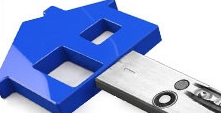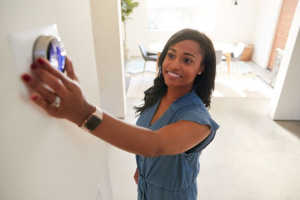RSPB test
 Residential rental activity in the UK is at an 11 year high with demand pushing up rents to a monthly average of £751, according to the latest Sequence National Rental Report.
Residential rental activity in the UK is at an 11 year high with demand pushing up rents to a monthly average of £751, according to the latest Sequence National Rental Report.
With so many now relying on rented accommodation, many different pressures are placed on landlords to provide for their tenants, including a requirement to present safe and secure accommodation. Mul-T-Lock looks at some of the ways landlords can provide greater tenant peace of mind.
Right from an initial rental period it is important to consider security, from what is expected from the landlord and the tenant. Whilst there are currently no minimum security requirements placed on landlords, there is a ‘duty of care’ that cannot be ignored and could make the difference to protect vital income.
Keys
A landlord should change the locks at the beginning of every tenancy to ensure total security, whereby old tenants or key holders cannot continue to gain access to the property.
Tenants are recommended to request a spare set of keys at time of rental, or in Mul-T-Lock’s case, one master key to operate all locks to a home, so as not to be calling the landlord for another set if loss occurs, leaving a property vulnerable to crime.
Tenants should tell the landlord if a lock is broken or is ‘sticking’ as this may lead to a key snapping in a lock, rendering the lock useless and requiring exert service support from a professional Locksmith, which is not the responsibility of the landlord.
Security
Throughout the rental period, the landlord has a legal responsibility to keep certain parts of a property in ‘good repair.’
If any damage is caused to a home as a result of a burglary, landlords may have a responsibility to cover repairs necessary. Landlords should also have insurance to cover items stolen that belong to them, just as tenants would have insurance to cover their own possessions.
However, a landlord is not necessarily responsible for improvements to the security of the building overall. Should tenants raise concerns, landlords could, under their ‘duty of care’, choose to upgrade security on site, but they are under no obligation to do so.
If a landlord doesn’t agree to make the improvements, it is always an option for tenants to pay for new door locks to be fitted, but remember to keep the old ones because they are ‘technically’ the landlord’s property!
Also a note of caution of avoiding causing any damage whilst fitting locks. Alongside getting landlord’s permission before doing so (often best in writing) it may be wise to engage in the cost effective services of locksmiths, who can advise on best security products for the application and install professionally.
For further advice on how to keep a rental property secure, or what is expected of a landlord to protect a home, please visit www.mul-t-lock.co.uk


